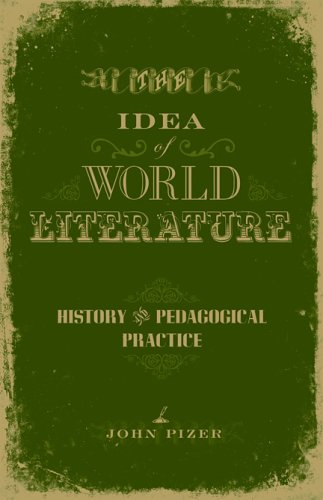

Most ebook files are in PDF format, so you can easily read them using various software such as Foxit Reader or directly on the Google Chrome browser.
Some ebook files are released by publishers in other formats such as .awz, .mobi, .epub, .fb2, etc. You may need to install specific software to read these formats on mobile/PC, such as Calibre.
Please read the tutorial at this link: https://ebookbell.com/faq
We offer FREE conversion to the popular formats you request; however, this may take some time. Therefore, right after payment, please email us, and we will try to provide the service as quickly as possible.
For some exceptional file formats or broken links (if any), please refrain from opening any disputes. Instead, email us first, and we will try to assist within a maximum of 6 hours.
EbookBell Team

4.0
16 reviewsJohann Wolfgang von Goethe introduced the concept of Weltliteratur in 1827 to describe the growing availability of texts from other nations. Although the term "World Literature" is widely used today, there is little agreement on what it means and even less awareness of its evolution. In this wide-ranging work, John Pizer traces the concept of Weltliteratur in Germany beginning with Goethe and continuing through Heinrich Heine, Karl Marx, and Friedrich Engels to the present as he explores its importation into the United States in the 1830s and the teaching of World Literature in U.S. classrooms since the early twentieth century. Pizer demonstrates the concept's ongoing viability through an in-depth reading of the contemporary Syrian-German transnational novelist Rafik Schami. He also provides a clear methodology for World Literature courses in the twenty-first century.
Pizer argues persuasively that Weltliteratur can provide cohesion to the study of World Literature today. In his view, traditional "World Lit" classes are limited by their focus on the universal elements of literature. A course based on Weltliteratur, however, promotes a more thorough understanding of literature as a dialectic between the universal and the particular. In a practical guide to teaching World Literature by employing Goethe's paradigm, he explains how to help students navigate between the extremes of homogenization on the one hand and exoticism on the other, learning both what cultures share and what distinguishes them.
Everyone who teaches World Literature will want to read this stimulating book. In addition, anyone interested in the development of the concept from its German roots to its American fruition will find The Idea of World Literature immensely rewarding.